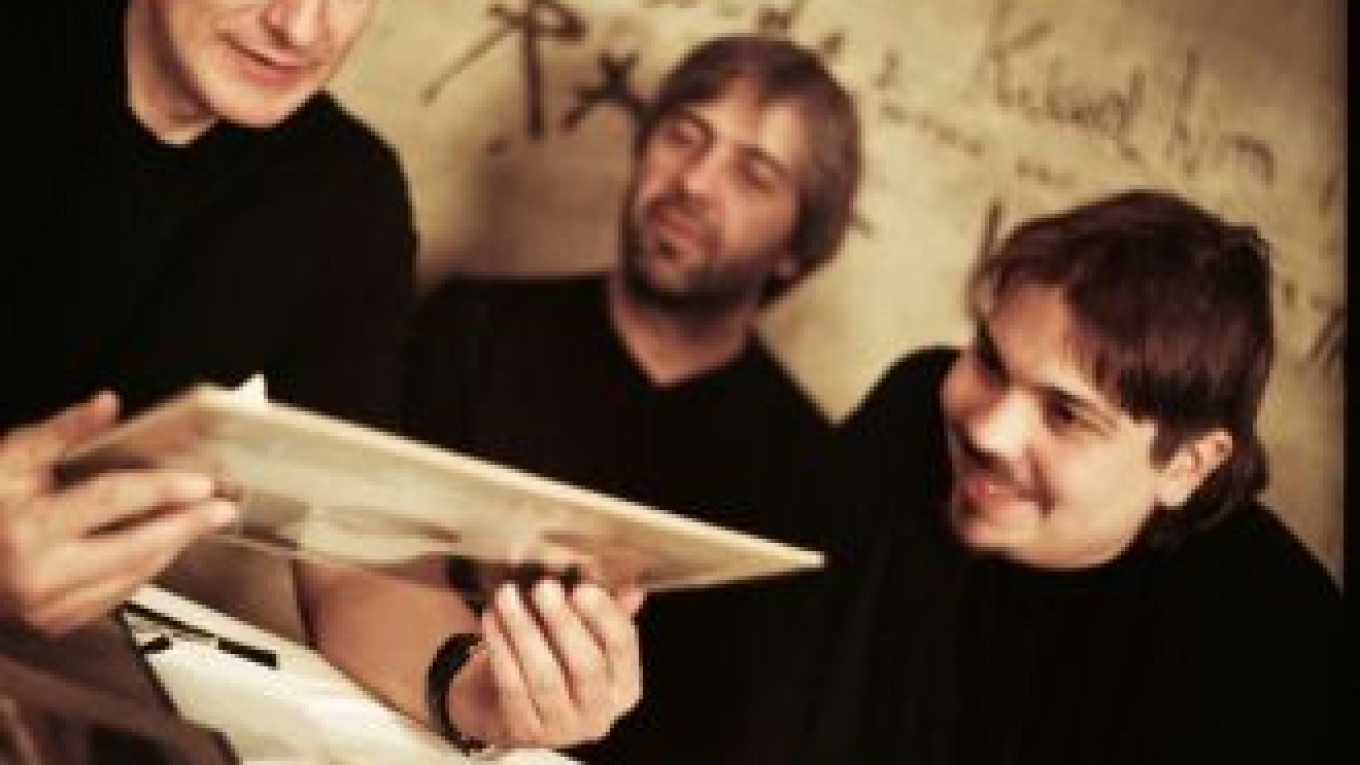Oleg Nesterov is a rock musician who is hard to pin down. He will appear on stage Thursday for the first time in 10 years with Megapolis, the group he led to success in the late 1990s and early 2000s. But he is also a producer, a novelist and a committed Germanophile.
He and Megapolis will make their live comeback at the International House of Music; their last album “Supertango” came out last year. The album reflects that Nesterov, now 50, is feeling his age and ready to make intelligent music about it.
“It is the first time that I am bringing songs like this to the public,” Nesterov said in a recent interview. “I think the album is very sincere. I even saw grown-up men crying [when listening]. This is not a laughing matter.”
Megapolis and Nesterov have long been respected among fans for their intelligent bluesy rock sound.
“Megapolis is a very delicate band that requires serious-minded listening,” music critic Artyom Troitsky said. “I would say that it is too good for the Russian stage, since people here like to have their kidneys beaten while this band touches different receptor cells.”
Nesterov studied in a German school while growing up in the 1970s, spending time in Dresden, East Germany, on an exchange program.
It was his German that gave him and his group their biggest hit in 2003 with an absurd version of “Landysh” or “Lily of the Valley,” a Soviet pop hit from the mid-1950s.
In his version the song’s lyrics are translated into German and the word “Lily of the Valley” is replaced with “Karl Marx Stadt,” the name of a city in East Germany, which is now called Chemnitz.
The result was surreal and contagious music.
Nesterov has worked for many years as a respected producer at his own label Snegiri, which has made a name for itself for gathering artists such as Naik Borzov, Masha Makarova from “Mashi i Medvedi” or “Masha and the Bears,” and “Bigudi,” the avant-garde group headed by popular playwright Yevgeny Grishovets.
“I like to work like a foreign intelligence officer using a lot of agents,” Nesterov said, referring to how he finds his artists through his agents: “art directors, music journalists, editors.”
Nesterov also produced Pyotr Nalich, the YouTube sensation who represented Russia at the Eurovision song festival in 2010.
Nesterov’s interest in Germany prompted him to write his first novel Yubka, or “The Skirt,” in 2008. The novel, set in Nazi-era Germany, tells the story of filmmaker and Hitler propagandist Leni Riefenstahl attempting to invent the electric guitar and influence the German masses.
The thriller tells of Allied attempts to stop the electric guitar and how it ends up in the United States and starts a rock ’n’ roll revolution there.
The musician is currently researching a new novel about Moscow in the 1960s during the Thaw period under Stalin’s successor, Nikita Khrushchev.
“It was a wonderful time, then,” Nesterov said.
Oleg Nesterov and Megapolis play the International House of Music on Thursday at 8 p.m. 52 Kosmodamianskaya Naberezhnaya, Bldg. 8. +7 (495) 730-4355, .
A Message from The Moscow Times:
Dear readers,
We are facing unprecedented challenges. Russia's Prosecutor General's Office has designated The Moscow Times as an "undesirable" organization, criminalizing our work and putting our staff at risk of prosecution. This follows our earlier unjust labeling as a "foreign agent."
These actions are direct attempts to silence independent journalism in Russia. The authorities claim our work "discredits the decisions of the Russian leadership." We see things differently: we strive to provide accurate, unbiased reporting on Russia.
We, the journalists of The Moscow Times, refuse to be silenced. But to continue our work, we need your help.
Your support, no matter how small, makes a world of difference. If you can, please support us monthly starting from just $2. It's quick to set up, and every contribution makes a significant impact.
By supporting The Moscow Times, you're defending open, independent journalism in the face of repression. Thank you for standing with us.
Remind me later.






